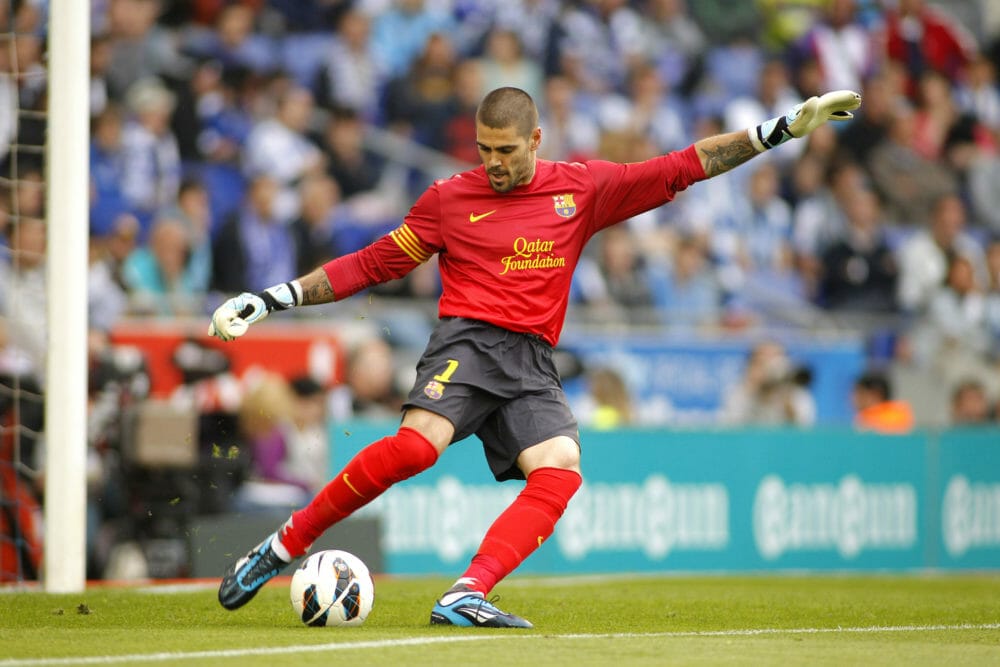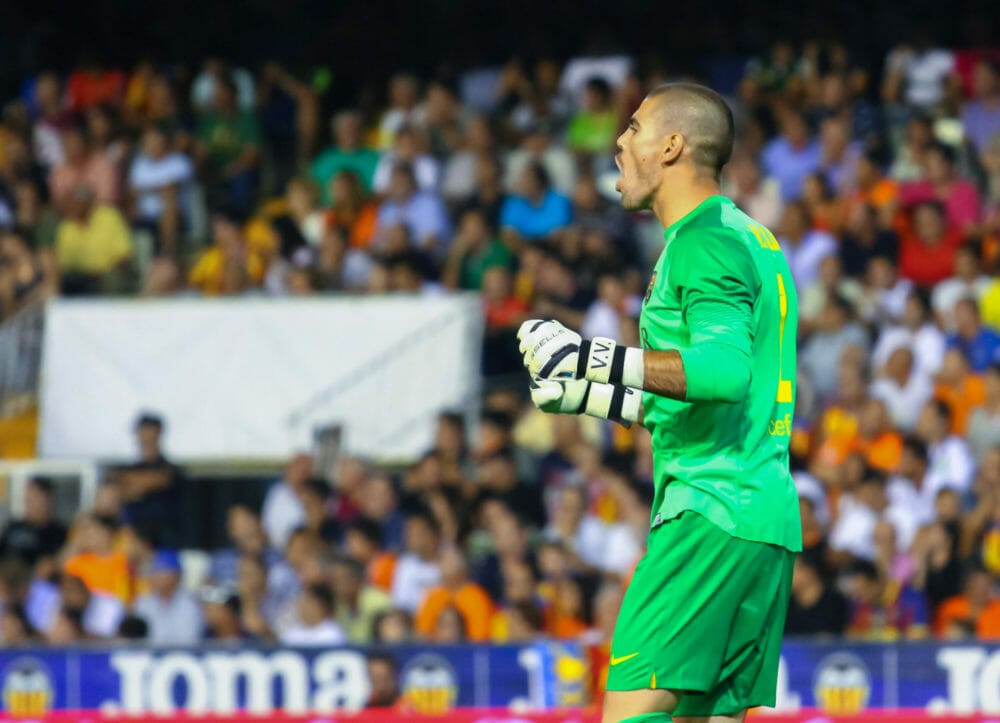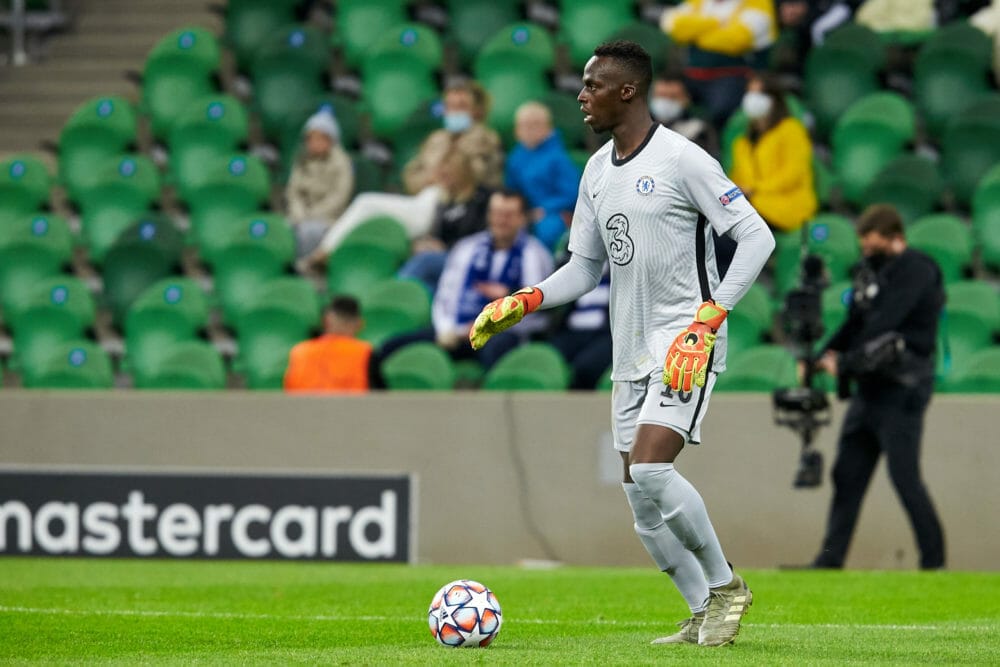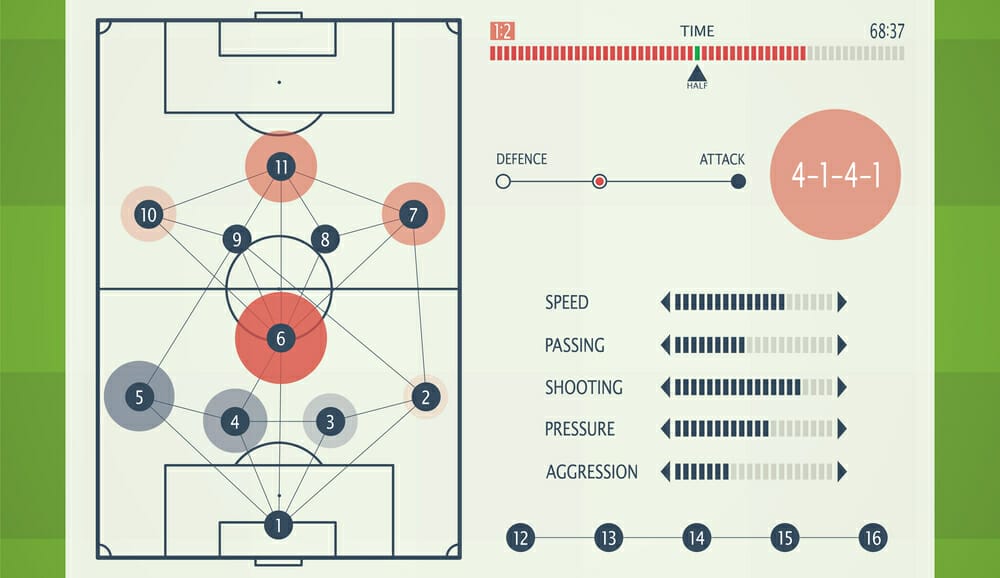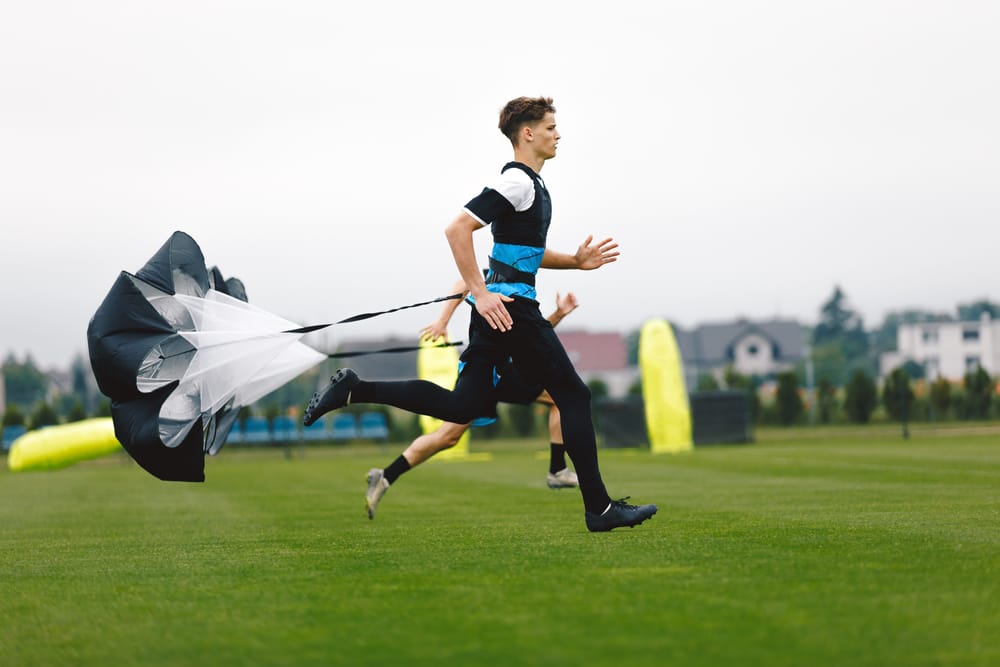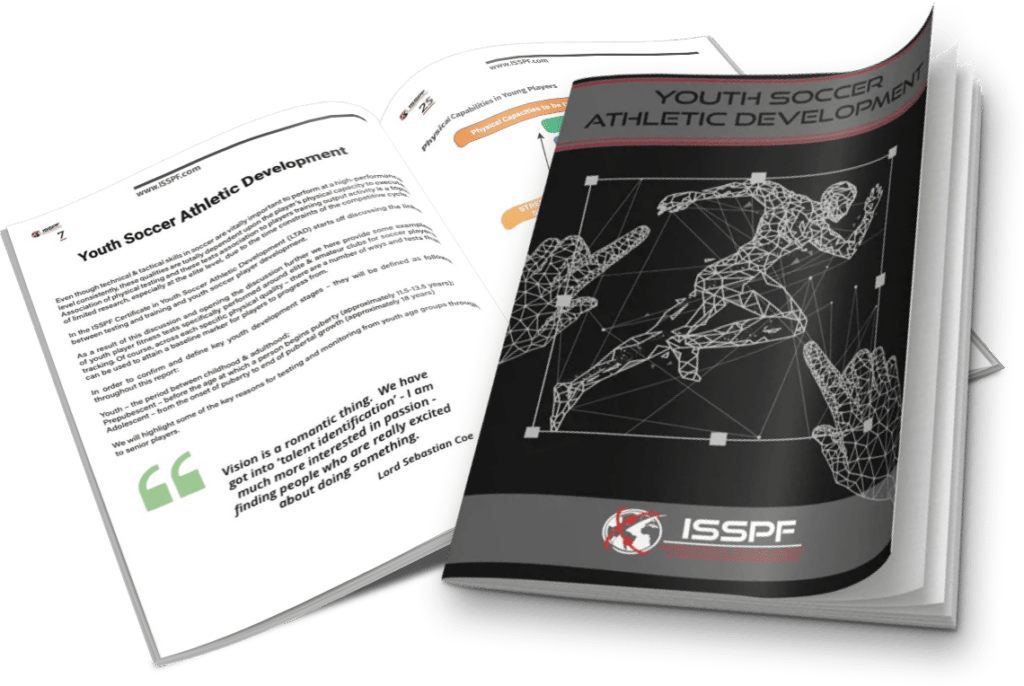A game-changer in the way the role has been viewed in recent times was due to the tactical concept promoted by Pep Guardiola within the dominating FC Barcelona team.
Dominating the football world through a possession based strategy was the key to developing the focussed approach of playing out from the back, and within a year or two as a result of the philosophy – changed the way the game looked at the role of the GK. Following this period at arguably the greatest club side ever, he had continued to promote this way of playing both within the German league champions Bayern Munich and currently Manchester City FC.
The then FC Barcelona goalkeeper Victor Valdes was at the time described within the set up as fundamental due to not only his goalkeeping skills, but also for his distribution, control and competency with the ball at his feet, enabling him to start the attacking moments through building out from the back.
Valdes recently spoke about how as an already European champion, Guardiola explained his ideas and how he would be key when starting to play-out from the back, “I was talking to the manager inside his office at Camp Nou Stadium and he had two small magnets on the tactics board next to one with my name on it, one by each side and very close to the end line of the pitch.”
“I kept thinking the man was completely bonkers, but I’m a little crazy myself so it was easy for me to identify with this level of insanity… I said they better want to have the ball in that area because you have to badly want the ball if you are going to play and build from that part of the pitch.”
The goalkeeper position arguably represents a unique role within the team sport, and despite its highly complex skill demands, research on football goalkeeping has only sporadically examined the position within isolation. Due to the ever changing demands on the game, the significant demands from a positional perspective are also significantly being driven. From the Goalkeeper (GK), full-back, centre midfielders to the centre forward, the GK Coach to the Head Coach and Manager, tactical changes coupled with physical changes must also be kept on top of.
To form a holistically oriented approach to coaching the game, we must first have a well-rounded understanding into the demands of each position. The well-established ‘4-Corners of High-Performance’ in football are Technical, Tactical, Physical and Psychological. Within the unique and bespoke Professional Certificate in Goalkeeping Coaching Science, the course not only spotlights the 4-cornered approach of the GK coach, but shows how they can implemented in an applied coaching manner to maximise goalkeeper performance associated with elite level Goalkeeping.
Join Our Professional Goalkeeper Coaching Science Course:
The bespoke courses developed by ISSPF Faculty members are a way of further exposing sport science students, coaching individuals working within the game & other soccer science & performance coaching enthusiasts with a thirst to develop further.
The link below will take you to the hugely popular & expertly designed ISSPF University endorsed, quality assured & accredited Professional Certificate in Goalkeeping Coaching Science online sport science course. This course has been described as one of the best online courses for further developing & adding to football coaching qualifications, where you will be exposed to goalkeeping specific football coaching research and practical examples used within the game by high level professionals.
Professional Certificate in Goalkeeping Coaching Science
How This Course Will Improve You
- Provides latest research findings, most efficient training methods and detailed insights into developing a goalkeeper specific soccer based methodology around player fitness & performance strategies
- Gain a better understanding how to maximise development & preparation of the goalkeeper in a more efficient & modern approach
- Learn how to balance key training elements from a technical, tactical & physical preparation in order to attain peak performance
- Coaching practitioners, performance coaches & support staff can only benefit themselves & their players further by a more in-depth knowledge of elite level technical & performance coaching relative to the age groups coached
Who is this course for?
- Individuals tasked with the responsibility for the coaching, training, & preparation aspects of goalkeepers or team sport players
- Individuals with an interest in developing their knowledge in the training methodology, physical training & development of individual athletes, players and the role of the goalkeeper
What Does This Course Cover?
Outline of the Professional Certificate in Goalkeeper Coaching Science (Pro Youth Level) course:
Module 1: The role of the goalkeeper coach
Lecturer: Fraser Stewart (Scottish Football Association, Head of Goalkeeping)
Module 2: Training design & application in youth development (LTAD)
Lecturer: Alex Segovia Vilchez (Spain)
Module 3: Individual development of the goalkeeper within a team environment
Lecturer: Ivan Kovčič (Dinamo Zagreb, Croatia)
Module 4: Nutritional support for the youth soccer player: maturation status & LTAD
Lecturer: Jack Christopher (Chelsea FC, England)
Module 5: Youth goalkeeper development: long term development planning
Lecturer: Eduardo Cachulo (SL Benfica, Portugal)
Module 6: Goalkeeping expectations: roles of the GK within the function of the game
Lecturer: Jeff Richardson (Arsenal FC, England)
Module 7: Skill acquisition in goalkeeping: developing technical proficiency
Lecturer: Daniel Tumelty-Bevan (Birmingham FC, England)
Module 8: Goalkeeper coaching analysis: developmental approach to goalkeeping
Lecturer: Graeme Smith (Rangers FC, Scotland)
Module 9: Managing pressure: emotion, anxiety & coping in elite soccer
Lecturer: Jeff Richardson (Arsenal FC, England)
Module 10: An academy goalkeeping training methodology: FC Barcelona case study
Lecturer: Dani Ortiz
Share this article:
